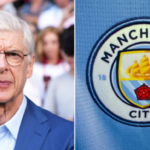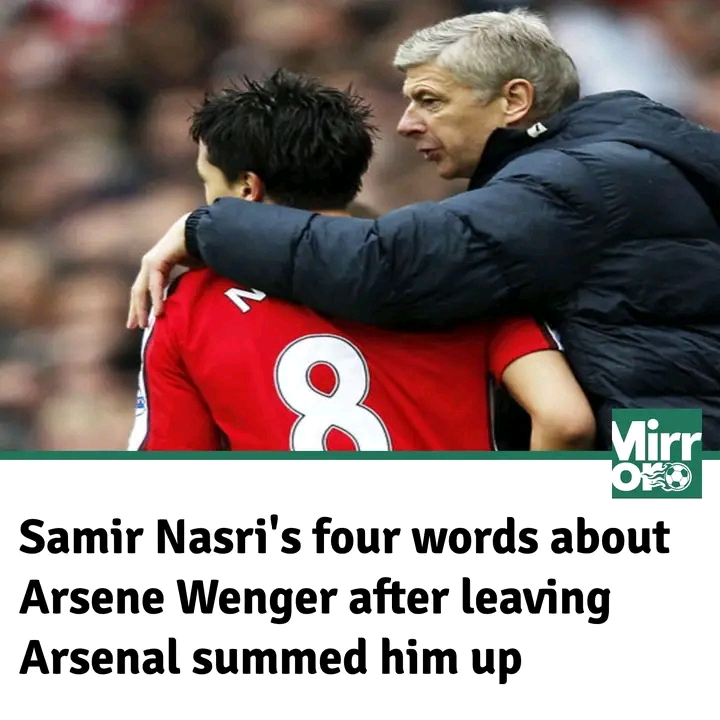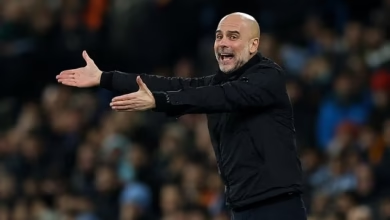Lionel Messi Open to Premier League Move – But Arsenal Must Meet One Condition

In 2003, during a period of immense success for Arsenal under the management of Arsène Wenger, a significant yet lesser-known moment in football history nearly unfolded. Lionel Messi, a young star at Barcelona, was seemingly tempted to make a move to North London, joining Arsenal at a time when they were rapidly rising to prominence in English football. This moment, as revealed by Messi’s former agent, Fabian Soldini, and discussed by Wenger himself, offers a fascinating glimpse into what might have been a dramatically different trajectory for both Arsenal and Messi’s career.
At the time, Lionel Messi was a teenage prodigy in Barcelona’s famed La Masia youth academy. His potential was already evident, though he had yet to make a significant impact on the senior team. Arsenal, on the other hand, were nearing the peak of their powers under Wenger, having enjoyed a few years of growing success. With a squad brimming with talent and a manager renowned for nurturing young players, Arsenal represented a tempting option for many of the world’s best young footballers.
Among those players, Messi was certainly a name on Wenger’s radar. As Soldini recalls, the prospect of Messi joining Arsenal was very real, although it was ultimately not to be. In a conversation with Spanish outlet Marca, Soldini revealed that Messi had indeed been “tempted” by the idea of moving to England. This was not just a passing interest—there were serious discussions at the time, and Messi was presented with the opportunity to join Arsenal’s famed youth system. However, despite this tempting offer, Messi ultimately chose to remain at Barcelona.
Soldini recalls that Messi’s decision came at a time when Barcelona was undergoing significant changes, with several young players, including Cesc Fàbregas, also facing decisions about their futures. Fàbregas, who had been a product of Barcelona’s youth academy, ultimately left for Arsenal in 2003, joining Wenger’s team. His departure marked a significant moment in both his career and Arsenal’s history. The decision for Fàbregas to leave was not a simple one, as he was also one of Barcelona’s brightest young prospects. But for Messi, the opportunity to leave for Arsenal was one that he ultimately passed on.
According to Soldini, Fàbregas’s decision to leave Barcelona opened up a similar opportunity for Messi, but Messi’s heart was set on remaining with the club that had nurtured him. Despite the temptation of joining one of the top clubs in Europe, Messi’s loyalty to Barcelona won out, and he chose to stay in Spain. This decision would go on to shape the course of his entire career, as Barcelona would eventually go on to build the team around Messi, allowing him to develop into one of the greatest players the world has ever seen.
Messi’s decision to stay at Barcelona was a critical one, but it is interesting to consider what might have happened had he chosen otherwise. Had Messi made the move to Arsenal, the impact on both clubs could have been monumental. Arsenal were at the beginning of their transition into one of Europe’s most exciting teams, with Wenger revolutionizing English football and bringing in several top young talents. They had already made headlines with the signing of Fàbregas and were on the verge of embarking on one of their most successful periods.
Had Messi arrived at Arsenal, he would have joined a squad that already included some of the Premier League’s brightest stars, such as Thierry Henry, Robert Pirès, and Patrick Vieira. With Wenger’s development of young players and his reputation for nurturing raw talent, it’s easy to imagine that Messi could have flourished at Arsenal, potentially even before fully making his mark at Barcelona.
However, in hindsight, the outcome of Messi’s career would likely have been far different. Barcelona, too, was on the cusp of greatness in the early 2000s, although their dominance would not fully materialize until the next decade. The club’s reliance on youth development, coupled with their strong infrastructure, provided Messi with an ideal platform to develop into the player he would eventually become. Barcelona offered Messi the opportunity to play alongside some of the greatest players in football history, and the bonds he formed with fellow Catalan stars such as Andrés Iniesta, Xavi Hernández, and Sergio Busquets became central to the team’s success over the following years.
It is also worth noting the role that Barcelona’s management played in keeping Messi at the club. Barcelona had invested significant resources into Messi’s development, and his potential was clear to everyone involved. The club, under the guidance of coaches like Frank Rijkaard, eventually built the team around Messi, cementing his place as one of the club’s most important players. His success in Barcelona was shaped by a unique confluence of talent, opportunity, and support, and it was this environment that allowed him to reach unprecedented heights.
In contrast, had Messi joined Arsenal, it is unclear how his development might have been affected. While Wenger was known for his ability to nurture young players and create a positive environment for them to grow, the style of play at Arsenal was vastly different from that of Barcelona. The team played a much faster, more direct style of football, and it might have taken Messi longer to adapt to the demands of the Premier League. Additionally, the team that Wenger had in place in 2003 was not yet as fully realized as the one that would go on to enjoy its legendary period in the mid-2000s, so Messi might have faced more challenges in getting to the top of English football.
However, it’s important to acknowledge that Wenger’s interest in Messi was not unique. At the time, Messi was regarded as one of the top young players in the world, and it is likely that many clubs were aware of his potential. Barcelona’s resolve to keep Messi was ultimately unbreakable, and despite various clubs’ attempts to lure him away, they never succeeded. Arsenal, however, did manage to bring in Fàbregas, another member of Barcelona’s talented youth is setup, and he would go on to become a key figure in Wenger’s squad. Fàbregas’s move to Arsenal marked a significant chapter in both his career and Arsenal’s history, as he would be central to the club’s success for many years.
In the years that followed, Messi went on to build a remarkable career with Barcelona. He became the face of the club, leading them to numerous La Liga titles, Champions League trophies, and domestic cups. His skill, vision, and football intelligence set him apart from almost every other player in the world. Messi was not just a goal scorer, but a player who could create chances, dribble past defenders, and change the course of a match in an instant. His iconic moments, particularly in the Champions League, solidified his status as one of the greatest footballers of all time.
The fact that Messi scored so many goals against Arsenal, including in the unforgettable 2011 Champions League quarterfinals, further underscored his greatness. In total, Messi scored nine goals against Arsenal in six games, often playing a key role in Barcelona’s victories over the Gunners. His performances against Arsenal became part of his legendary career, as he consistently tormented the North London club with his brilliance on the pitch.
In conclusion, while the possibility of Lionel Messi joining Arsenal in 2003 remains one of football’s great “what if” moments, it’s clear that Messi’s decision to stay at Barcelona ultimately shaped his destiny. While Arsenal’s interest in Messi was real and tempting, the environment at Barcelona provided Messi with the ideal conditions to develop into the player he became. Had Messi moved to Arsenal, his career might have taken a different path, but as history shows, Messi’s legacy with Barcelona is unparalleled. His achievements with the club are some of the most extraordinary in football, and his place among the greatest players in history is firmly secured.















